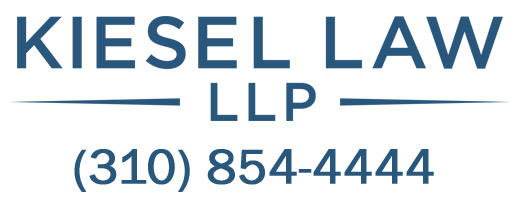What is a Class Action Lawsuit? Myths & Misconceptions
Class action lawsuits often make headlines due to being high-stakes battles with massive settlements. Despite this, many people don’t actually know much about them. What is a class action lawsuit? Who can benefit from a class action lawsuit? How are class actions different from mass actions? The list of questions goes on and on.
Sometimes, answering these questions is complicated by the fact that there are a wide number of myths and misconceptions about class action lawsuits. Here at Kiesel Law, our mission is always to help our clients achieve their goals. A good way to do that is to make sure they know exactly what they’re talking about when they talk about a class action lawsuit.
With that in mind, today we’re going to some of the most common myths and misconceptions about class action lawsuits. Do you need further help shedding light on these or other complex legal proceedings? Kiesel Law is here to help. Schedule a consultation today!
Myth 1: Class Action Lawsuits Are Frivolous
One of the most pervasive myths about class action lawsuits is that they are inherently frivolous or opportunistic. While it’s true that some frivolous lawsuits exist, class actions often arise from genuine grievances. These lawsuits provide a mechanism for individuals with similar claims to pool their resources and seek justice when pursuing individual claims would be impractical.
In many cases, class actions help uncover corporate wrongdoing, product defects, or unfair business practices that might otherwise go unnoticed. They serve as an essential tool for holding large corporations accountable for their actions and protecting consumers’ rights. Showing that an issue has affected a large group of people is one of the minimum requirements of a class action lawsuit; it’s also an effective retort to the claim that class actions are frivolous.
Myth 2: Class Actions Only Benefit the Lead Plaintiff
Some people mistakenly believe that class actions primarily benefit the lead plaintiff, with other class members receiving only nominal compensation. While it’s true that the average class action lawsuit payout per person varies based on the size of the settlement or awarded damages and the number of plaintiffs, class actions are designed to ensure that all eligible class members share in the recovery.
Class members have the right to opt out of the class action and pursue individual claims if they believe they can obtain a better outcome that way. However, the majority of class members choose to participate, as it often provides a more efficient and cost-effective way to seek compensation. When settlements are reached, class members can receive compensation or other remedies for the harm they suffered. In some instances, class actions result in changes to corporate practices that benefit consumers nationwide.
Myth 3: Class Action Lawsuits Are Time-Consuming and Inefficient

Some critics of class action lawsuits argue that class actions are time-consuming and inefficient, dragging on for years without resolution. It’s true that some class actions can take years to reach a conclusion, but this is not unique to class actions. Complex legal disputes, regardless of their form, often require time to gather evidence, navigate legal processes, and negotiate settlements.
Moreover, class actions are an efficient way to address widespread harm. They consolidate multiple individual claims into a single lawsuit, streamlining the legal process and avoiding the need for numerous separate trials. This efficiency can lead to faster resolutions and cost savings for both the plaintiffs and the courts. In other words, the scope and complexity of most class action lawsuits mean that they sometimes do take a long time to conclude. However, it is still often the most efficient and effective way to pursue justice.
Myth 4: Class Actions Are a Windfall for Plaintiffs
Another common misconception is that class action settlements result in enormous windfalls for plaintiffs. In truth, class action settlements are typically structured to provide compensation that is proportional to the harm suffered by each class member. The amount received by individual class members may not be life-changing, but it is intended to provide a fair and reasonable remedy for the harm they experienced.
Again, the average class action lawsuit payout per person varies greatly depending on the size of the settlement or awarded damages and the number of plaintiffs. Class action payouts are often divided based on a formula that takes into account factors such as the extent of harm, the number of class members, and the defendant’s ability to pay. These settlements aim to achieve a balance between compensating class members and deterring future wrongdoing by corporations.
Myth 5: Class Actions Drive Up Consumer Prices
One of the most enduring myths is that class action lawsuits against companies and other organizations ultimately do more harm than good by driving up prices for goods and services. Critics argue that corporations pass on the costs of litigation and settlements to consumers, resulting in higher prices. While it’s true that some costs associated with class actions may be passed on to consumers, this argument oversimplifies the complex relationship between class actions and pricing.
Class actions serve an essential role in deterring corporate misconduct, promoting fair business practices, and protecting consumers. In the long run, this can contribute to a healthier marketplace where companies are incentivized to operate ethically and avoid costly legal battles. As with any other form of litigation, there are downsides and risks of joining a class action lawsuit, but the claim that class actions increase consumer prices only exists to dissuade plaintiffs from pursuing justice.

Get the Truth About Class Actions from Kiesel Law
Here at Kiesel Law, we know that class action lawsuits are a vital component of the legal system, serving to protect consumers, hold corporations accountable, and promote fairness. Despite the myths and misconceptions that persist, it’s essential to recognize the valuable role that class actions play in addressing widespread harm and ensuring that individuals have the means to seek justice when wronged.
Are you someone who has been harmed or wronged due to a corporation or other organization’s negligence? Are you looking to join or initiate a class action lawsuit? Don’t be dissuaded by myths and misinformation. The attorneys at Kiesel Law have the knowledge and experience necessary to guide you through this complex legal landscape. Reach out to us today!


